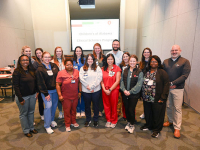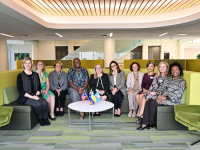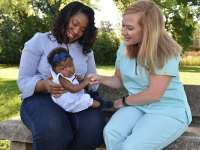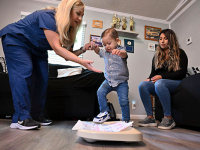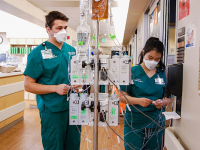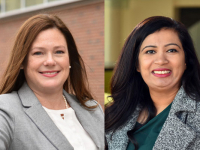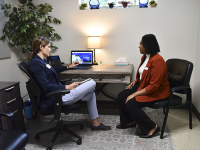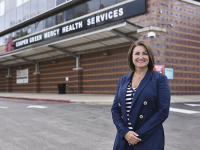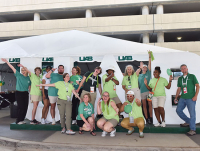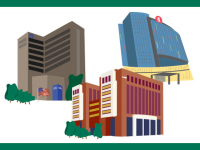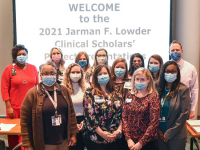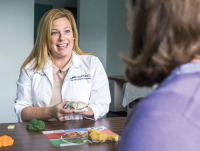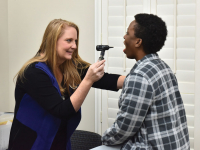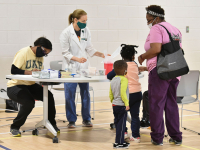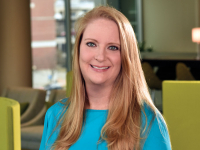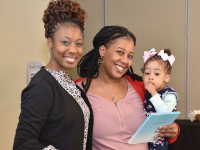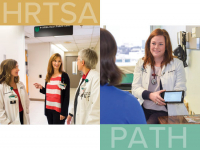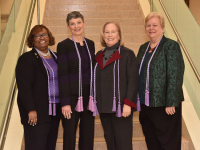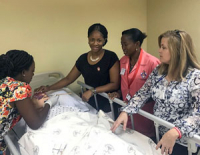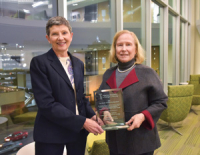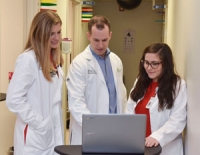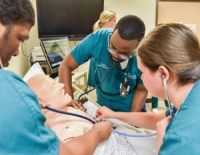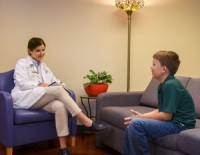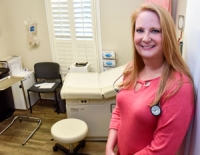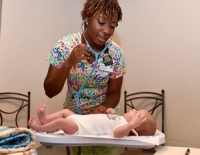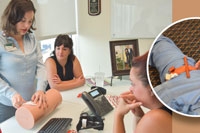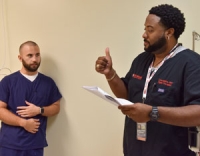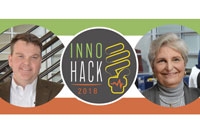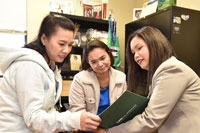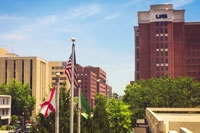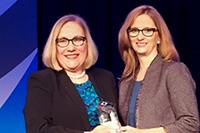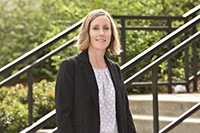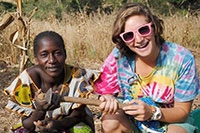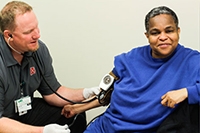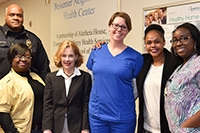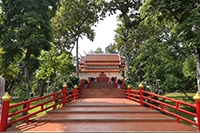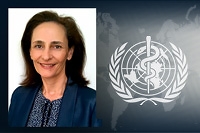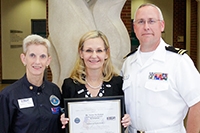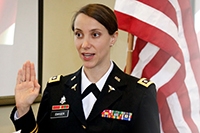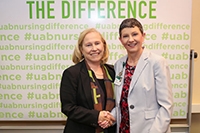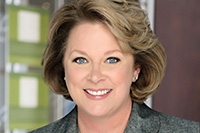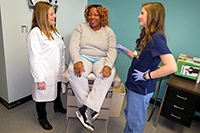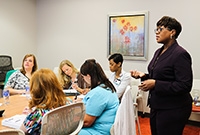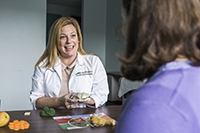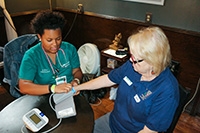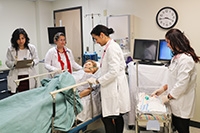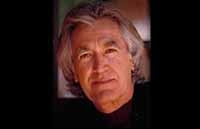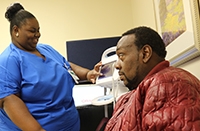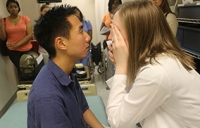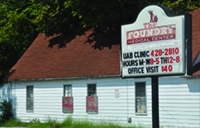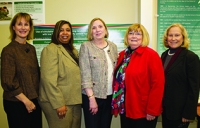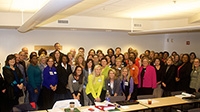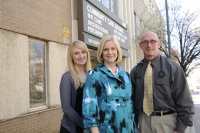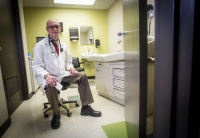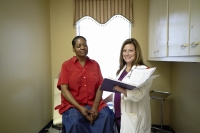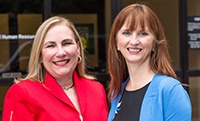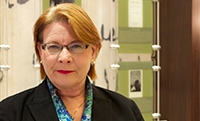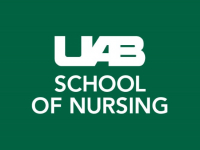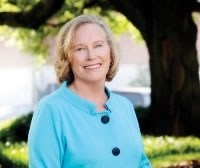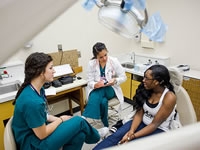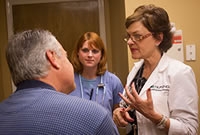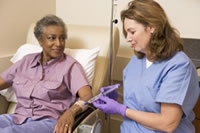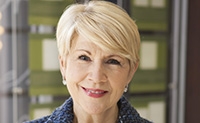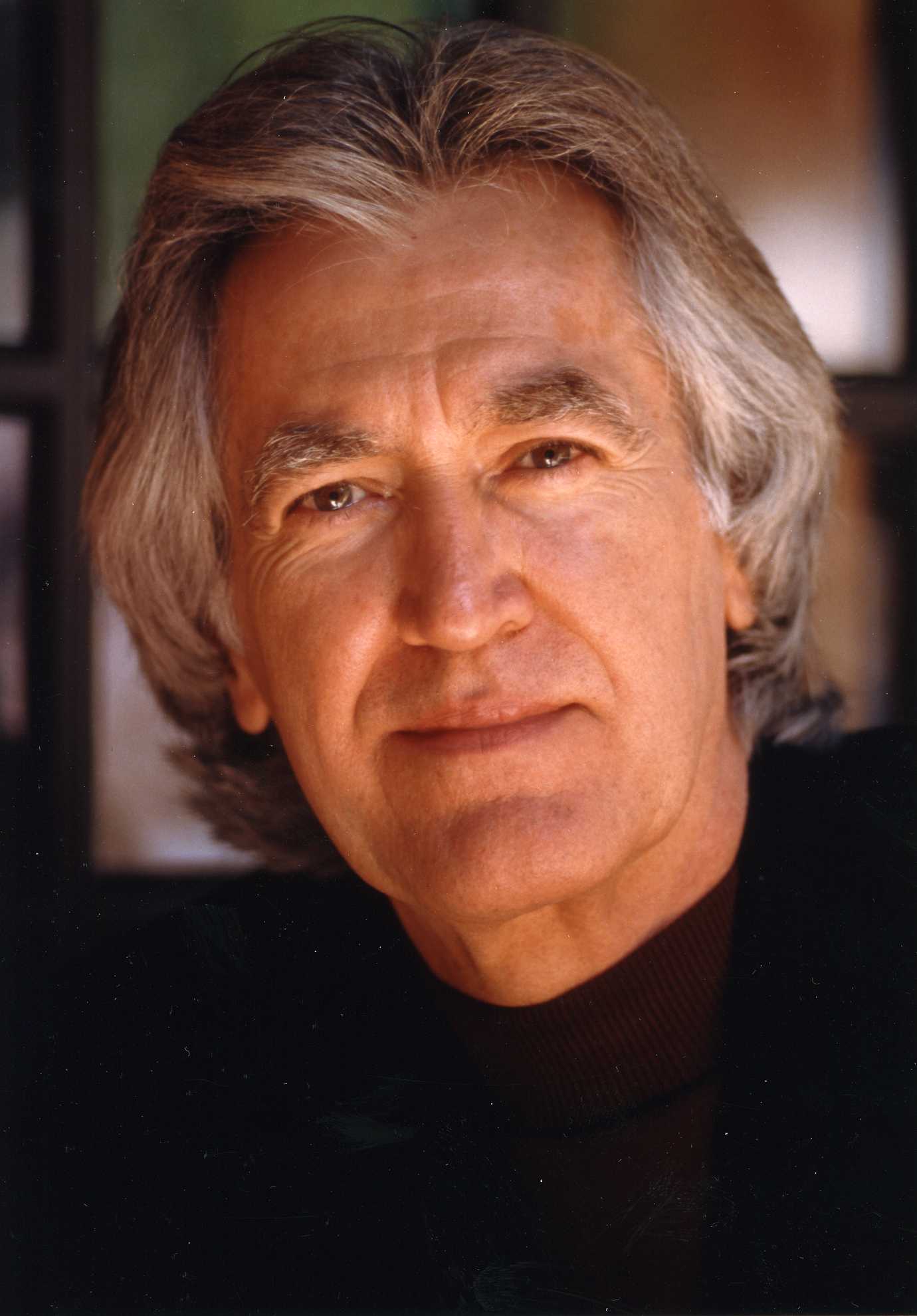 On Dec. 3, Larry Dossey, M.D., will deliver the lecture “Spirituality, Healing, and Modern Medicine: Present Developments & a Look into the Future,” at 4 p.m. in Volker Hall, Lecture Room E, 1670 University Boulevard.
On Dec. 3, Larry Dossey, M.D., will deliver the lecture “Spirituality, Healing, and Modern Medicine: Present Developments & a Look into the Future,” at 4 p.m. in Volker Hall, Lecture Room E, 1670 University Boulevard. The lecture is sponsored by the UAB School of Medicine Office of Diversity and Multicultural Affairs, UAB Libraries Historical Collections and UAB School of Nursing.
Dossey is a former physician of internal medicine and former Chief of Staff of Medical City Dallas Hospital. He received his M.D. degree from Southwestern Medical School in Dallas, and trained in internal medicine at Parkland and the Veteran’s Administration hospitals in Dallas.
Dossey has lectured at medical schools and hospitals throughout the United States and abroad. In 1988 he delivered the annual Mahatma Gandhi Memorial Lecture in New Delhi, India, the only physician ever invited to do so.
Dossey is the former co-chairman of the Panel on Mind/Body Interventions, National Center for Complementary and Alternative Medicine, National Institutes of Health. He is the author of 12 books dealing with consciousness, spirituality, and healing, including The New York Times bestseller “Healing Words: The Power Of Prayer And The Practice Of Medicine,” and most recently “One Mind: How Our Mind Is Part Of A Greater Consciousness And Why It Matters.” He is the executive editor of the peer-reviewed journal EXPLORE: The Journal of Science and Healing. Dossey lectures around the world and lives in Santa Fe with his wife, Barbara, a nurse-consultant and the author of several award-winning books as well.
Dossey’s lecture will address one of the most profound social movements in the late 20th and early 21st centuries — the shift toward integrative medicine, often called alternative or complementary medicine. A key element underlying this movement is a new respect for consciousness and spirituality — how emotions, attitudes, volition, and a sense of “the spiritual” shape our lives and influence our health and longevity. These factors are dramatically influencing how medicine is taught and practiced in our culture. For example, in 1993 only three of the nation’s 125 medical schools had courses exploring the role of spiritual practices in health; currently, around 90 have such.
In 1998 the Joint Commission on Accreditation of Healthcare Organizations established Spiritual Assessment Standards, which health-care institutions must meet in order to be accredited. In 1999, the Association of American Medical Colleges set forth learning objectives for all U.S. medical students, which included “the ability to elicit a spiritual history as well as an understanding that the spiritual dimension of peoples’ lives is an avenue for compassionate caregiving.”
In the past two decades, more than 1,200 studies have been done suggesting that people who follow a spiritual path — it does not seem to matter which — live significantly longer and have a lower incidence of all major diseases than people who do not follow such a path. Approximately 200 studies suggest that distant healing, in the form of prayer or healing intentions, can make life-and-death differences in health outcomes.
Dossey has been centrally involved in these developments for more than two decades. He will show why these happenings are crucially relevant to everyone, patients and health-care practitioners alike. Dossey will also address the emerging evidence that we can not only insert information into the world, as in distant healing and prayer, but also acquire information from the world and use it to make wise health choices.
A key issue is how spirituality and health intersect in a specific person’s life as not everyone who follows a spiritual path enjoys a longer and healthier life. The appearance of illness can lead to a sense of spiritual failure or actual punishment. Dr. Dossey will discuss ways we can understand these challenging events, and how we can avoid what has been called “new-age guilt” when things go wrong with our health.
A new view of consciousness emerges from these developments — a nonlocal picture in which consciousness is viewed as immortal and eternal. This picture brings hope to the morbid views of consciousness in current neuroscience, in which the annihilation of consciousness is assumed at the time of death. The emerging view affirms ancient wisdom: the mind as omnipresent, immortal, eternal, infinite, and, in some dimension, one with all other minds.
The University of Alabama School of Medicine is accredited by the Accreditation Council for Continuing Medical Education to provide continuing medical education for physicians. The University of Alabama School of Medicine designates this educational activity for a maximum of 1 AMA PRA Category 1 credit(s)™. Physicians should only claim credit commensurate with the extent of their participation in the activity.
The University of Alabama at Birmingham is an equal opportunity/affirmative action institution.

